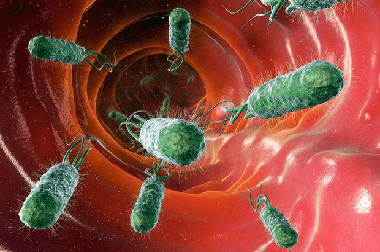General microbiology - viruses, bacteria, fungi >>>> Spore-forming bacteria in the treatment of intestinal infections
Spore-forming bacteria in the treatment of intestinal infections.

There are a number of probiotic cultures of bacteria that have properties that can be used to treat intestinal infections of various etiologies (bacterial, fungal, viral). These include aerobic spore-forming bacteria of some species (B. Subtilis, B. Sereus, B. Liheniformis, Saccharomyces boulardii), which in ordinary life are not representatives of the human intestinal microflora, but getting into the body from the external environment can themselves cause toxic infection, accompanied by diarrhea and vomiting.
The medicinal significance of these bacteria is based on their inactivation under laboratory conditions and the use of strains with reduced virulence (aggressiveness, toxicity): B. Subtilis DSM 5750, B. Sereus IP 5832, B. Liheniformis DSM 5749, Saccharomyces boulardii. Spore-forming bacteria secrete antibacterial substances similar in action to antibiotics and inhibit the vital activity of pathogens, but unlike probiotics of bifidobacteria, lactobacilli and the like, participating in the metabolic processes of the human body, they are not representatives of the natural microflora of the body, therefore, their placement in the intestinal lumens is extremely targeted therapeutic nature.
The spores of these bacteria are resistant to the effects of gastric juice, therefore they are able to freely penetrate into various parts of the intestine, where they grow into vegetative forms and form highly competitive colonies for pathogenic and opportunistic bacteria of the genus Proteus, E. coli, Staphylococcus aureus, Pseudomonas aeruginosa, Shigella dysenteria, Yersinia enterocolitica, Clostridium difficile, Candida.
Freeze-dried spores of spore-forming bacteria are used to treat intestinal disorders with dysbacteriosis, irritable bowel syndrome, colitis, flatulence, and infectious intestinal disorders (salmonellosis, escherichiosis, dysentery and other foodborne diseases ). Drugs based on this type of bacteria are symptomatic drugs, since their regular use can have the opposite effect and cause intestinal upset, but use in doses specified by the doctor helps restore the microbiocenosis in the intestine.
Medicines containing spore-forming bacteria of the above-described action include:
- Drugs for the treatment of humans (eubiotics): Bactisubtil, Sporobacterin, Enterol, Flonivin BS.
- Preparations for the treatment of animals (feed probiotics): Irilis, Paciflor, Bioplus 2B.
Preparations containing spore-forming bacteria have contraindications specified in the instructions for each preparation, and require medical advice. When using the above drugs, special attention should be paid to the state of the immune system, and therefore their use is contraindicated in primary immunodeficiencies.

Read

Read



























